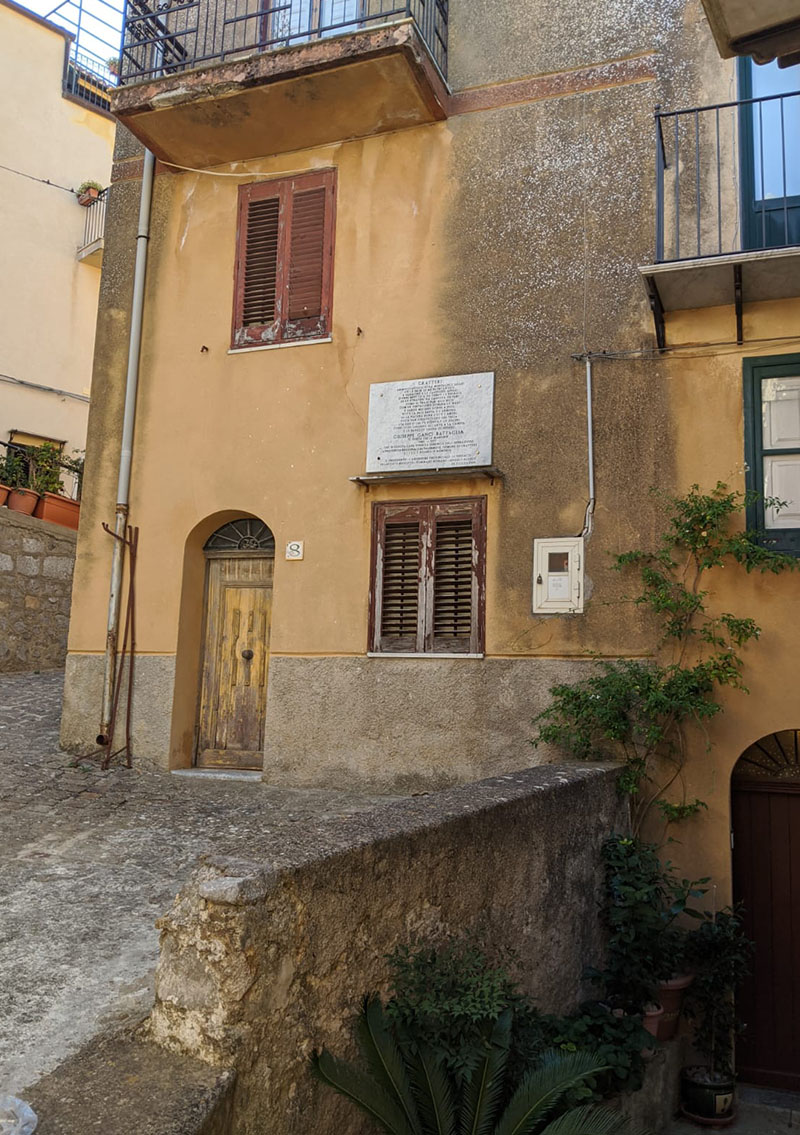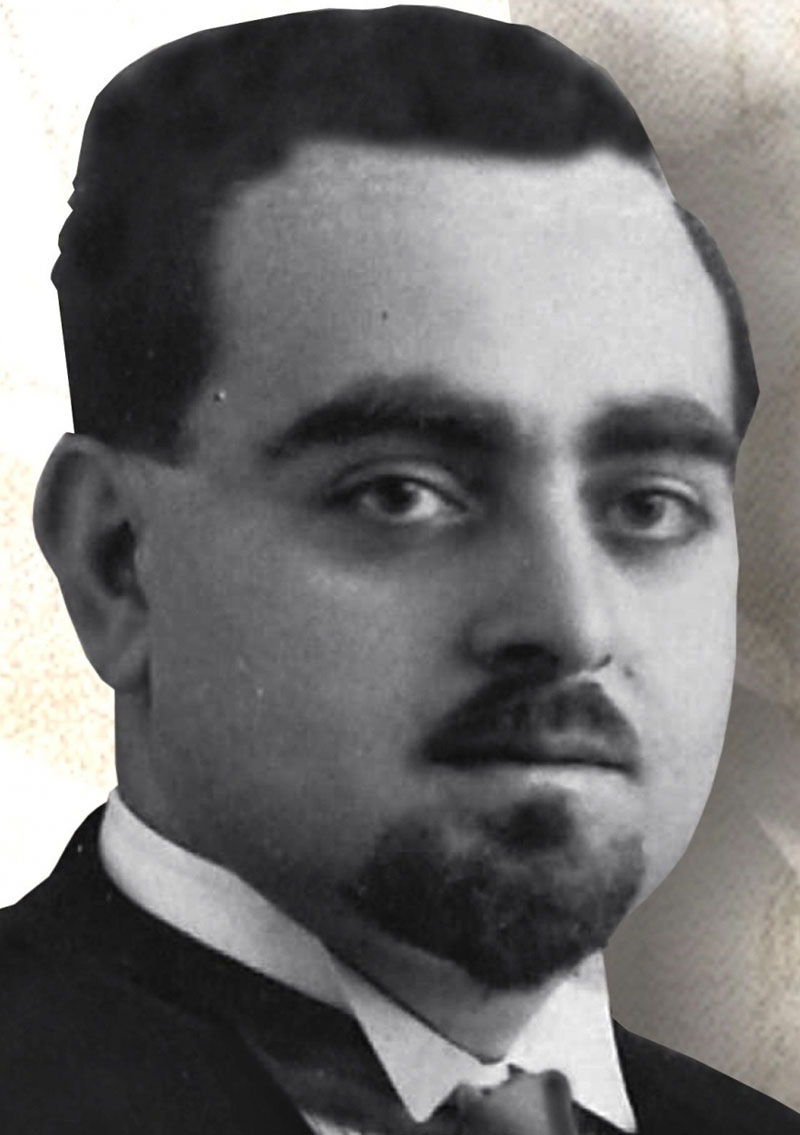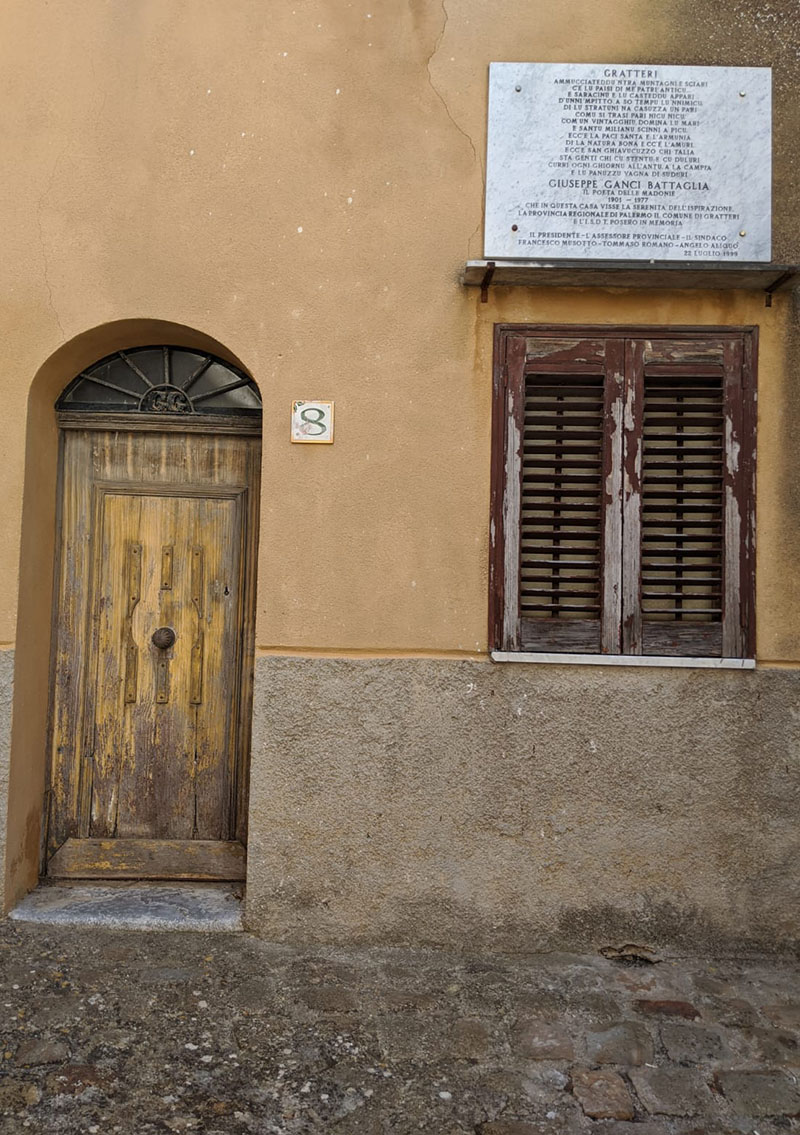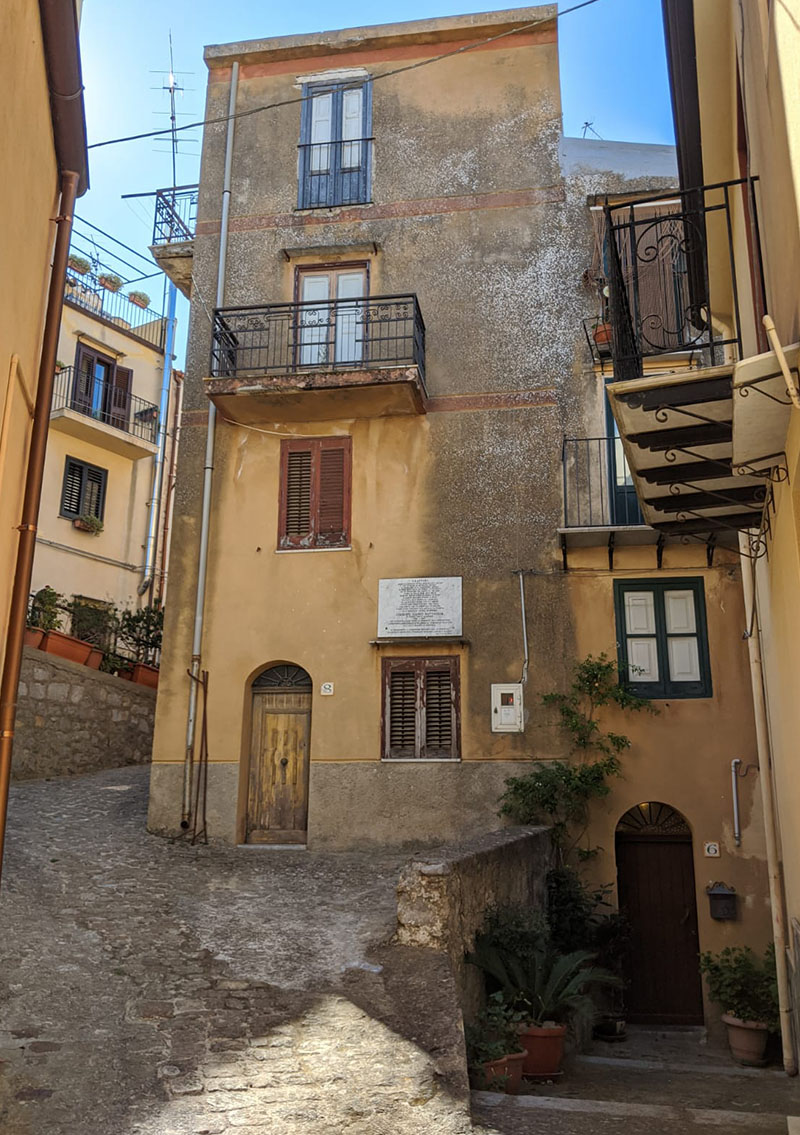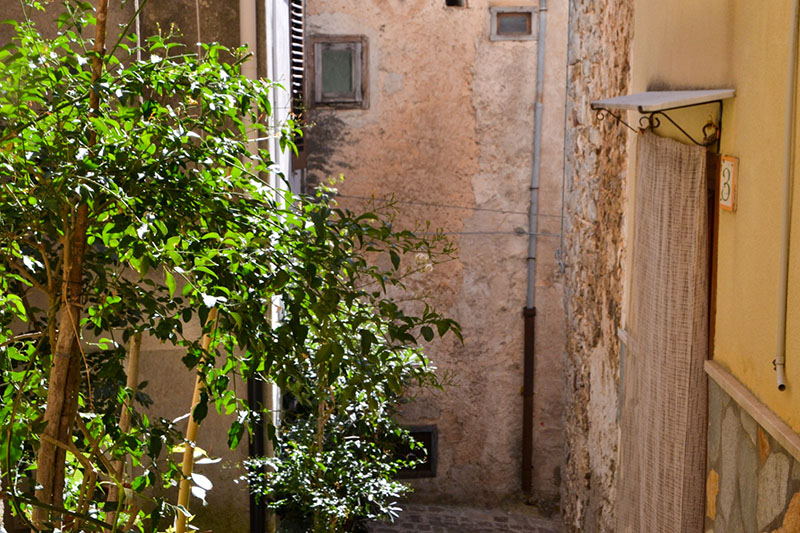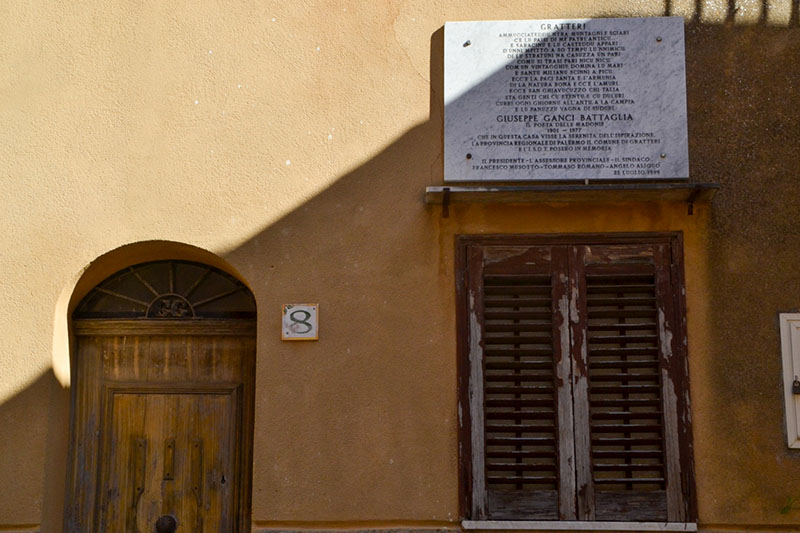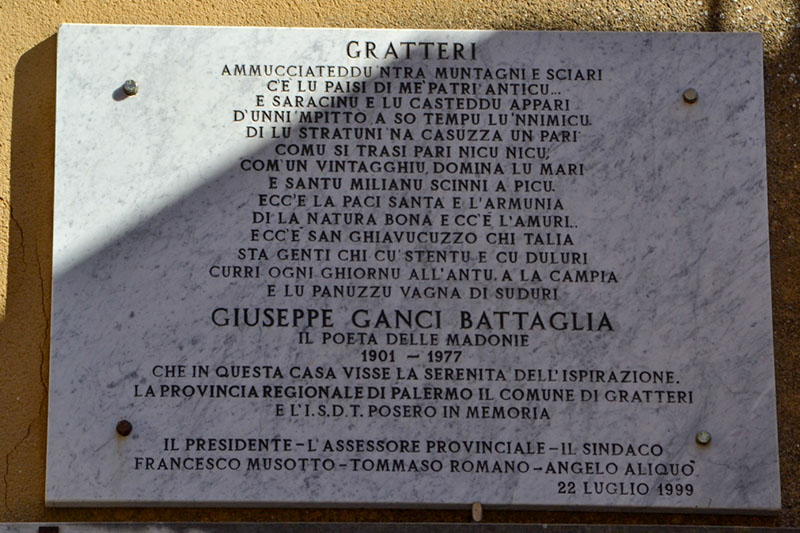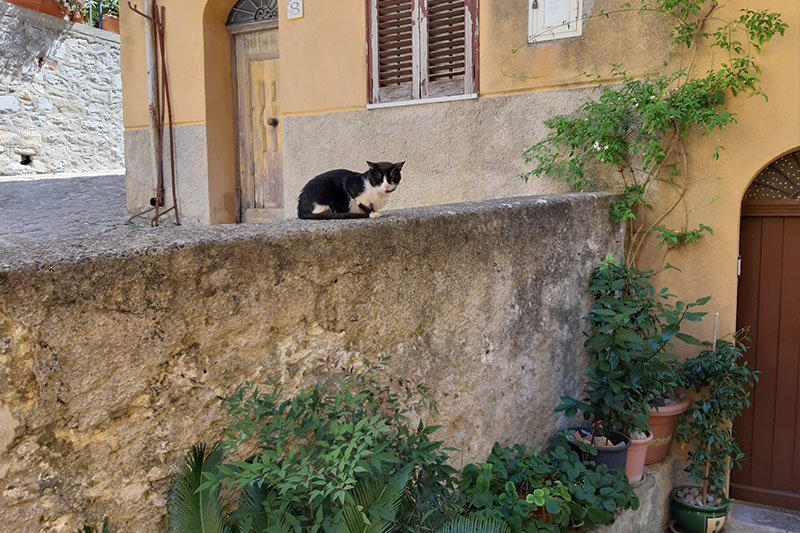Your basket is currently empty!
This is certainly the best known poem in Gratteri, and if you ask, the villagers will recite it by heart. It represents a strong nostalgic description of the small madonite village as it once was, when the poor people used to live a hard life but they loved each other with brotherly spontaneity.
The author is Giuseppe Ganci Battaglia, one of the greatest dialectal poets of the 20th century, who gave prestige to Gratteri and was known as the “poet of the Madonies”, for his periodic return to the family home, especially in the summer months.
He considered that house “the breeding ground of poetry”, a place of inspiration where he created his most beautiful chants, his lyrics shrouded in pain and nostalgia, and some of his best known books.
Fifty years of intense cultural, literary and theatrical activity, which made the poet from Gratteri acclaimed by the public for his genuine way of describing reality.
As a dialectal poet, with Ignazio Buttitta, in 1927 was co-director of the art periodical “la Trazzera” (about poetry and folklore), publishing an entire monograph about “Historical and traditional backgrounds of the Municipality of Gratteri” that the poet directed as first and third fascist podestà.



